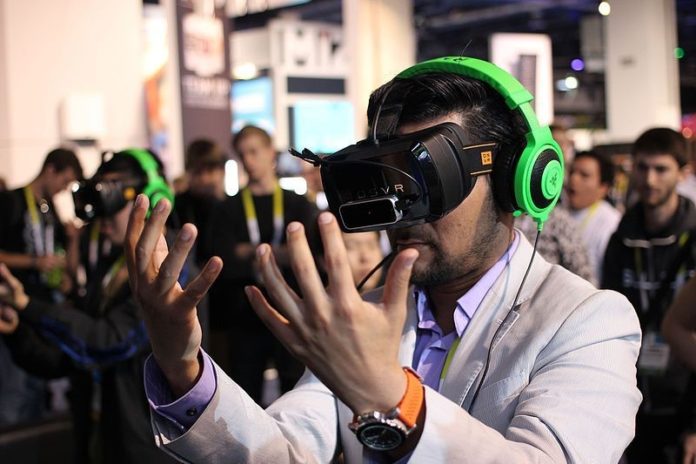Source: Wikimedia Commons
Around the world, iGaming represents a solid bet – in the UK, Europe, and the United States, the numbers consistently trend upwards and a renewed focus on younger people – millennials, the 18 to 30-odd-year-olds that make the world turn – has granted casinos a degree of permanence in entertainment, an industry otherwise dominated by video and mobile games.
Virtual Reality
However, as one of the more excitable industries out there (at least as far as adopting new technologies is concerned), iGaming has something of a point to prove over the next few months; chiefly that its faith in virtual reality (VR), livestreaming, and mobile play was well-placed. Put another way, 2017 and 2018 could be the acid test for the previous year’s innovation.
The biggest issue faced by iGaming companies is one of technological progress – VR is unlikely to take off anywhere while the price of entry still remains very high. Almost every device made of plastic (sorry, Google Cardboard) comes in at over $1,000 when the cost of the device required to run it is added on; it’s a problem that’s likely to persist until Oculus or HTC find cheaper suppliers for their parts.

eSports
An emphasis on social features will remain significant for casinos in 2017 and probably through to the end of the decade. The obvious example is live gaming, which online brands like Guts casino have dedicated a large amount of virtual real estate to accommodating. Guts is hedging its bets on live dealing as a natural next step for iGaming, with thirty rooms dedicated to live play, including fifteen just for blackjack.
Competitive video gaming or eSports will inevitably creep onto iGaming websites too as the world becomes gradually more obsessed with watching people do regular stuff. In a similar vein, Twitch integration could be a boon for casino sites, which could stream tournaments and how-to videos to an already engaged audience; it is as much a marketing tool as a niche of entertainment.
Cryptocurrency
Anybody who has been on the internet in the last few months will also be aware of the expanding influence of cryptocurrency like Bitcoin and the technology behind it, blockchain. The former is a currency the banks can’t touch and the latter is a type of database, albeit an extremely secure one stored on lots of PCs around the world. Both have a potential home in iGaming.

Bitcoin is the only currency that can be used in any country without limitations so it could serve as an aid to expansion for casinos looking to corner markets in certain parts of the world. Blockchain, on the other hand, lets iGaming websites offer provably-fair odds, simply because each roll of a dice is stored in a way that cannot be tampered with.
In many ways, predictions for iGaming are easy to make, simply because the industry tends to follow the trajectory of conventional video gaming – streaming, support for Bitcoin payments, and VR headsets are all mundane aspects of PC and console play in 2017. It doesn’t matter where casino gets its cues from though; Statista expects the global iGaming industry to add around $4bn to its worth every year to 2020.
With all the experimenting done and filed away, 2017 should be an opportunity for iGaming companies to prove the bets they’re making on tech are worthwhile.










